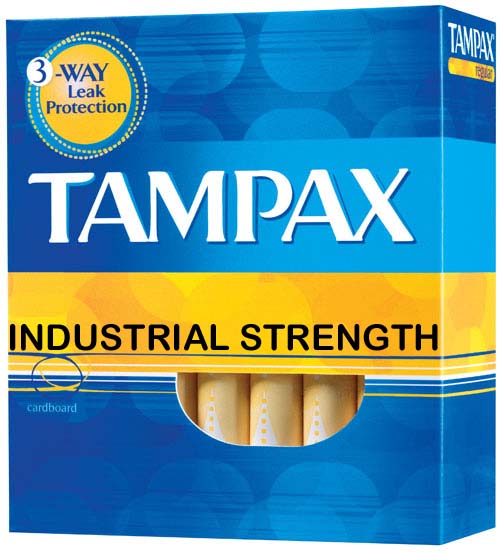Hey BP, Catch a Clue from Letterman
June 10th, 2010. By Hunter West
 The BP oil spill has galvanized public opinion on not only the concept of drilling for a non-renewable resource in the midst of another non-renewable resource (water), but the responsibilities of those charged with the drilling process.
The BP oil spill has galvanized public opinion on not only the concept of drilling for a non-renewable resource in the midst of another non-renewable resource (water), but the responsibilities of those charged with the drilling process.
Now the public is asking another question: why are BP, and their federal partners in the effort to contain the spill, being so allegedly secretive?
The New York Times yesterday went public with a number of examples of attempted censorship of the news media trying to cover the spill. The oil spill, and the efforts to contain it, is easily the biggest news story of the year and one of the biggest environmental disasters of all time.
Naturally, the media wants to cover it. America is hungry for details. Americans—especially those living in, or near the affected area, want to know just how bad things are. The rest of the world and anyone around the globe with any sensitivity to the environment and eco systems are also galvanized by this story.
And yet, there appears to be an effort to control what goes out. As The New York Times details, various media outlets have been stymied from filming from the air, or from the ground, in various instances. BP denies this—as do the various agencies that have set up command centers in BP-owned buildings (isn’t THAT convenient…). Last month Southern Seaplane out of Louisiana wanted to take a photographer from the Times-Picayune of New Orleans up over the Gulf for a photo shoot.
Southern Seaplane reports they were questioned intensively, and then denied. The Federal Aviation Administration (FAA) was apparently also part of that decision—and the agency has Read the rest of this entry »
BP Oil Spill Fix (#7)
June 10th, 2010. By AbiK
 So now I’m just posting BP Oil Spill ideas as they come in—and there are plenty coming in—thanks everybody! It’s now day 52 of the oil spill and Perdido Pass has been closed. This idea from Caleb takes its cue from Geotechnical Engineering. It’s an area I know nothing about, but I’m sure some of you out there do.
So now I’m just posting BP Oil Spill ideas as they come in—and there are plenty coming in—thanks everybody! It’s now day 52 of the oil spill and Perdido Pass has been closed. This idea from Caleb takes its cue from Geotechnical Engineering. It’s an area I know nothing about, but I’m sure some of you out there do.
Fix the BP Oil Spill Idea #7
“I believe that capping the well permanently is a very viable idea. In Geotechnical Engineering a technique for oceanic foundations design utilizes Suction Piles. They are very large cylinders which are floated to locations, filled with water, sunken into place, water is pumped out, and they are “sucked” down into the ocean bottom. They are large cylinders which could be used to cap the area which is discharging excessive volumes of crude oil into the gulf. This is a relatively expensive process, but with the bounds that have been made and the relatively low success rate, I think that some sort of Suction Pile retrofit would be a possible solution.”
Got an idea you’d like to share? Let us know. Or email our editor at .
Thanks Caleb!
Pleading Ignorance on SLAPP aka SHUTUP Lawsuits
June 9th, 2010. By Kristine B
 I recently came across an interesting article in The New York Times. The article was about a phenomenon known as SLAPP: Strategic Lawsuit Against Public Participation. Since the Internet has made SLAPP lawsuits more common, I thought I’d discuss them and their implications in this week’s Pleading Ignorance.
I recently came across an interesting article in The New York Times. The article was about a phenomenon known as SLAPP: Strategic Lawsuit Against Public Participation. Since the Internet has made SLAPP lawsuits more common, I thought I’d discuss them and their implications in this week’s Pleading Ignorance.
At their heart, SLAPP lawsuits are designed to intimidate and censor critics. The idea is that a company, say MegaCo, wants to stop critics from saying negative things publicly about the company. MegaCo would file lawsuits against those individuals who speak out against the company in an attempt to silence them.
 Whether or not MegaCo would win the lawsuit is of no importance. Faced with mounting legal bills and the strain of a lawsuit, the defendant—often an individual with no legal team or financial resources to fall back on—abandons the criticism. Whether or not the criticism is valid is also of no importance. The important thing is that MegaCo has prevented someone from criticizing the company and has probably discouraged other critics from coming forward.
Whether or not MegaCo would win the lawsuit is of no importance. Faced with mounting legal bills and the strain of a lawsuit, the defendant—often an individual with no legal team or financial resources to fall back on—abandons the criticism. Whether or not the criticism is valid is also of no importance. The important thing is that MegaCo has prevented someone from criticizing the company and has probably discouraged other critics from coming forward.
In many cases, MegaCo and the defendant won’t even see the inside of a courtroom. Usually, companies like MegaCo send a strongly-worded warning letter from their legal department, threatening legal action if the criticism isn’t taken back. Because the plaintiff is usually an individual who has no desire to face a lawsuit, the criticism is quickly abandoned.
Critics of SLAPP lawsuits say they violate free speech and amount to censorships. Some states, including California, have statutory protections against SLAPPs.
What is so dangerous about these lawsuits is they are not intended to win on their merits. They are only intended to stop people from using their right to freedom of speech by scaring them into silence. The difference between a SLAPP lawsuit and a legitimate defamation Read the rest of this entry »
Going Fem with More Fix the BP Oil Spill Ideas-of-the-Day
June 9th, 2010. By AbiK
 Ok, today’s like a radio station’s Two-for-Tuesday (or three or four?) for BP Oil Spill Fix ideas. Only it’s Wednesday. Whatever. I so need to post these…we’ve now gotten several ideas for fixing the oil spill that have a theme in common: FEMININE HYGIENE. Yes, there’s no shortage of (parental discretion advised here folks) suggestions to use a tampon-like apparatus to suck up the oil. Granted, it would have to be a mighty big tampon—and I don’t even want to think of what the equivalent of Toxic Shock Syndrome would be here for such a large sponge-like contraption. Be that as it may, here’s a couple of our readers’ ideas—some are from folks who just might surprise you a bit—like this first one…
Ok, today’s like a radio station’s Two-for-Tuesday (or three or four?) for BP Oil Spill Fix ideas. Only it’s Wednesday. Whatever. I so need to post these…we’ve now gotten several ideas for fixing the oil spill that have a theme in common: FEMININE HYGIENE. Yes, there’s no shortage of (parental discretion advised here folks) suggestions to use a tampon-like apparatus to suck up the oil. Granted, it would have to be a mighty big tampon—and I don’t even want to think of what the equivalent of Toxic Shock Syndrome would be here for such a large sponge-like contraption. Be that as it may, here’s a couple of our readers’ ideas—some are from folks who just might surprise you a bit—like this first one…
More Ideas-of-the-Day to Fix the BP Oil Spill
This one’s from Judy B’s 83-year old mother:
“Ms. Nancy – I was just speaking with my 83 year old mother by phone. She mentioned that she had a thought on how to fix the BP issue…woman style. She laughed and commented that tampons would stop the flow…of course, they would have to be size adjusted. Mom said that if one didn’t work, they could just keep stuffing them into the pipeline until it is plugged…just like the bathroom plumbing! As we talked we also thought that pads (ie Kotex pads) or rather blockaide devices made from similar rmaterials might also help the waterways, beaches, and marshes…absorb the oil before it can do damage/more damage to these natural areas!
Thought I would pass this along for her! Thanks…Judy B”
and from smwhite…
“All else has failed obviously in trying to stop the leaking oil and destroying everything around it. What is wrong with you people? With all the professionals you have at your disposal, surely to God you can come up with a better idea than a “top hat” and “junk fillers”?? I say, why don’t you contact the makers of Tampax tampons, build a “super size” one and make it waterproof and try plugging it with that? or do a hysterectomy!! I am not joking. I am a Newfoundlander and we have oil rigs off our coast as well. I would be so pissed if the same thing happened here and our government and the oil companies responsible couldn’t come up with a better idea than what you guys have been trying so far. Seriously, get your heads out of the Gulf coast sand and start using some old fashioned ideas or there won’t be any sand or wildlife left, not to mention what your lack of success is doing to the Gulf coast fishermen and women who rely on this for their livelihood. Hope you respond or at least put this out there for some consideration. It certainly can’t hurt to try.”
Got an idea you’d like to share? Let us know. Or email our editor at .
Thanks Judy B. and smwhite!
Fix the BP Oil Spill Idea-of-the-Day (#6)
June 9th, 2010. By AbiK
 The desire to fix the BP Oil Spill has sparked a lot of creativity in folks—not only in the ideas themselves, but in how they’re presented. This guy, who goes by MrCarneytom over at youtube, sent this video clip over to LawyersAndSettlements.com as well. He refers to it as sort of like a “poor boy’s gate valve”–one in which a titanium plate is used to secure the flange—his diagrams explain it best—check them out in his video…
The desire to fix the BP Oil Spill has sparked a lot of creativity in folks—not only in the ideas themselves, but in how they’re presented. This guy, who goes by MrCarneytom over at youtube, sent this video clip over to LawyersAndSettlements.com as well. He refers to it as sort of like a “poor boy’s gate valve”–one in which a titanium plate is used to secure the flange—his diagrams explain it best—check them out in his video…
Idea-of-the-Day to Fix the BP Oil Spill (#6)
Got an idea you’d like to share? Let us know. Or email our editor at .
Thanks MrCarneytom!
Archive by Category
- Accidents (24)
- Airlines (9)
- Asbestos Mesothelioma (262)
- Automotive (25)
- Celebrity (14)
- Class Action (84)
- Complaints/Comments (15)
- Consumer Fraud (84)
- Contest (2)
- Court of Public Opinion (5)
- Crazy Sh*t Lawyers See (61)
- Criminal Law (4)
- Defective Products (111)
- DePuy ASR Hip Recall (2)
- Discrimination (22)
- Drugs/Medical (248)
- Elder Care Abuse (4)
- Emerging Issues (462)
- Employment (54)
- Environment (52)
- Financial (28)
- Food Illness (15)
- Human/Civil Rights (4)
- Insecurities (5)
- Insurance (16)
- Intellectual Property (16)
- Internet/E-commerce (19)
- lawsuits (161)
- Lawyers (20)
- Lawyers Giving Back (43)
- Lex Levity (10)
- Personal Injury (106)
- Pleading Ignorance (53)
- Real Estate (2)
- Recall (6)
- Scam (3)
- Securities (13)
- Settlement (81)
- Tort Reform (2)
- Totally Tortelicious (81)
- Veterans (11)
- Whistleblower (9)